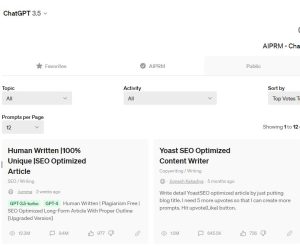
The Start of AI Writing

What were the earliest AI writers, and did they struggle to take off?
The earliest AI writers emerged during the nascent stages of artificial intelligence development. Researchers and programmers recognized the potential of AI in the field of writing, leading to various experiments and endeavors to create digital scribes.
One influential figure in the history of AI and writing is Alan Turing, the renowned mathematician who laid the groundwork for early AI experiments. His groundbreaking work in computing and machine intelligence paved the way for future advancements in AI writing.
In 1950, Turing proposed the Turing Test, a significant milestone in AI history. This test aimed to determine a machine’s ability to exhibit human-like intelligence, including writing. Although it was not directly tied to AI writing, the Turing Test set the stage for assessing AI’s capabilities in understanding and producing human language.
Early AI writing experiments in the 1960s and 1970s involved computer programs generating basic texts, poetry, and even attempting to answer questions. These early attempts, however, faced considerable challenges. AI struggled to grasp the nuances of language, leading to clunky and sometimes nonsensical outputs.
The influence of science fiction also played a crucial role in shaping AI concepts and aspirations. Writers and filmmakers envisioned AI writers as futuristic entities capable of producing flawless literature. However, the reality of AI’s limitations dampened initial expectations.
Despite early promise, AI writing faced skepticism and resistance. Many traditional writers and intellectuals doubted whether machines could truly replicate human creativity and expression. The fear of job displacement was another concern, with writers worrying that machines could replace human authors, leading to a decline in demand for human-generated content.
Moreover, ethical considerations surrounding AI writing contributed to its struggle for acceptance. Questions about authorship, ownership, and potential misuse of AI-generated content were raised, sparking ethical debates.
However, as technology progressed, AI writing tools started to evolve and improve. Advanced algorithms and natural language processing (NLP) techniques enabled machines to analyze and generate more complex texts. AI writers began to find their place in supporting and enhancing the writing process rather than entirely replacing human writers.
Today, AI writers have made a significant impact on the writing landscape. They have revolutionized content creation by streamlining the process and producing high-quality content at scale. News organizations utilize AI writers to generate routine news articles and data-driven reports, allowing journalists to focus on more in-depth and analytical pieces.
In marketing and advertising, AI-generated content has proven beneficial, enabling businesses to create compelling copy and targeted campaigns. AI writers have even ventured into creative writing, producing poetry, short stories, and novels, although their works often lack the depth and emotional nuances found in human-created literature.
AI-powered translation tools have significantly improved cross-language communication, breaking down language barriers in global markets. Moreover, AI-driven content curation algorithms help users discover relevant and personalized content, enhancing the online browsing experience.
Despite the initial struggles and doubts, AI writers have found their place in the modern writing landscape. They continue to evolve, offering new possibilities for creative expression and supporting human writers in their craft. As technology advances, the future of AI writing promises exciting developments that could further revolutionize the world of writing.

